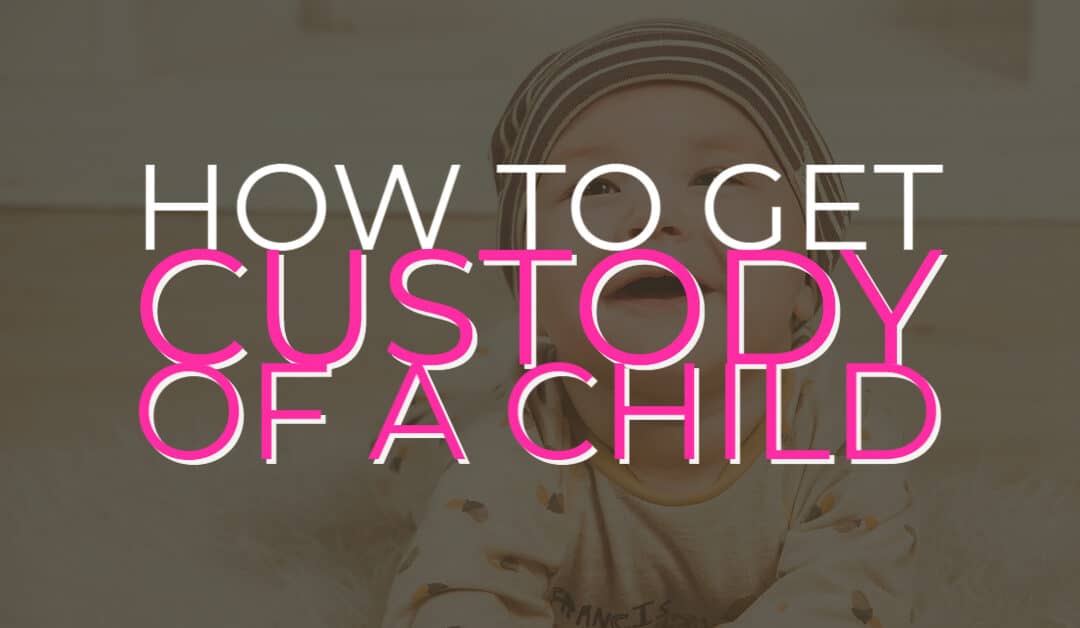If you worry about a child’s well-being with their parents or caregivers, you may wonder how to get custody of a child. However, getting child custody is sometimes not easy, even as a parent. The process of getting child custody is often long and challenging, but a child’s best interests are worth the effort. Let’s look at some of the ways that individuals successfully get custody of a child.
Ex Parte Order
In limited situations, you can file for emergency custody of a child with an “ex parte order.” This type of order is for cases when a child is in danger of injury, sexual abuse, or kidnapping to another state.
An ex parte order allows a judge to grant immediate temporary custody without hearing from the other party. When a judge gives an emergency custody order, the court quickly schedules a hearing to listen to both sides.
Best Interests of the Child
The “best interests of the child” are the basis for decisions in a child custody case. A parent’s marital issues do not affect child custody unless their problems affect the child negatively. The judge may look at many factors when making custody decisions, including:
- Parental living arrangements
- Parental ability to care for the child
- Child’s relationship with each parent
- Factors affecting the welfare of the child
Within North Carolina, you can file a custody case with the county court where the child or parent lives. To ask a court for a child custody order, you must file a complaint. You can ensure a correct complaint filing by working with an attorney.
In cases of uncontested divorce, you can work with the other parent or interested parties to make your custody agreements. Filing an uncontested divorce can save you money and time as you work with one attorney to draw up all of your custody agreements.
Parents
If you are the biological parent of a child, you can file for custody. A family law attorney can help you file using the judicial process in North Carolina, which includes:
- Filing your case with the correct county or district court
- Serving the summons and complaint on the other parent
- Preparing for the required mediation process.
Mediation is a non-court type of discussion between the parents and a trained mediator. It is often required before a custody case goes to a courtroom. The mediator will often help you work through child custody issues to reach an agreement without requiring a court case before the judge. However, in an uncontested divorce where you work out custody issues with your attorney, filing for child custody rulings is unnecessary.
If you and the other parent cannot agree on custody issues in mediation, one of you can request a hearing with the court. In the hearing, the judge will listen to your testimonies and any witness testimonies. At this point, the judge will issue a temporary or permanent custody ruling.
Grandparents and Non-Relatives
If you have cared for a child in the past and can prove that parents are unfit or have abandoned the child, you can file for custody or visitation. You must also verify the nature of your relationship with the child to get custody or visitation rights.
In some cases, grandparents may file for visitation when parents engage in a custody battle.
Temporary Custody Orders
Judges may enter either temporary or permanent custody orders. A temporary custody order stands until the judge decides to either:
- Modify the temporary order OR
- Enter a permanent order
Temporary custody orders are legally binding, but making modifications can be part of the process before they become permanent. However, a temporary custody order turns into a permanent custody order after some time.
If a temporary custody order is not meeting the child’s best interests, you can:
- Work with your lawyer to schedule a case review
- Ask for another hearing
- File for a permanent custody trial
Modify an Existing Order
If you’ve already been through the custody process and the judge ruled, you may file a Motion to Modify in the court that made the decision before. To change a permanent custody order, you must show that there has been a substantial change in circumstances affecting the child since the judge entered the permanent order.
You must also prove that changes are needed to serve the child’s best interests.
Does the Child Have a Say?
It is not uncommon for a parent or other interested party to bring a child to court to testify. However, some judges do not look kindly on this choice, depending on the child’s age and maturity level. There is also the consideration of whether the child understands how to tell the truth. However, despite the challenges, children may testify to:
- Specific incidents affecting custody
- About their preferences
Presenting Your Case
Child custody cases depend on your ability to present your case in a well-thought-out and straightforward manner using judicial procedures. Without an attorney, you must still adhere to rules of evidence and civil procedure.
An experienced family law attorney walks with you through the entire process and explains your legal rights and obligations. They help you describe your family’s circumstances more clearly so that the court can see what is best for the child.
We Can Help
At Plekan Law, we understand how important it is that children feel safe and protected as they grow. We work with you to create a strategic plan of action for custody issues. We look at all angles in a child custody case and find the best arguments to present for your best outcome. Contact us today and find out how we can help you win a custody battle.
Footnotes:

